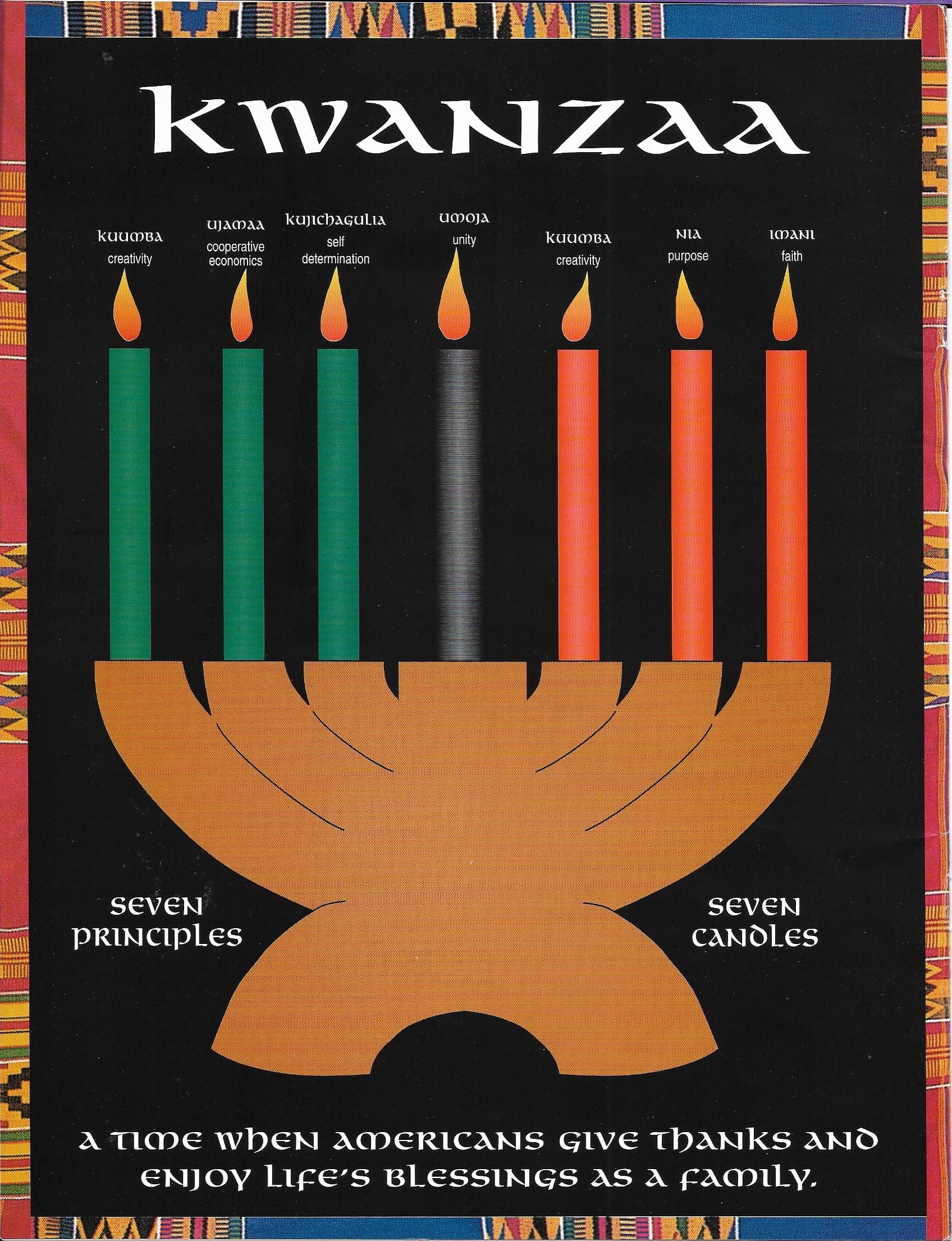
Kwanzaa
The Christmas and Hanukkah holidays also correspond with Kwanzaa, which is celebrated from Dec. 26- Jan. 1. Kwanzaa provides Black Americans with a special opportunity to connect back to our roots. And there are some startling parallels between what we see going on in our communities today and what was happening when Kwanzaa was created by Dr. Maulana Karenga in 1966. The Watts riots in Los Angeles in 1965 began when an African-American motorist was stopped by police for suspected drunk driving, but the situation quickly escalated into a fight between police and onlookers and over 6 days, left 1,000 injured and 34 dead, 23 of whom were shot by LAPD officers or National Guardsmen. The Black community was left reeling and raw from the ordeal, and sharply divided between shopkeepers with looted, burned out storefronts that wouldn’t be rebuilt and those who believed violent protests were the only remedy to the inequality and poverty that dominated their lives. Dr. Karenga, who was chairman of Pan-African Studies at California State University, was looking for a way to help heal and reunite the Black community, and created Kwanzaa the year after the riots. If you haven’t taken a look at the holiday, it might be time to do so—we are once again a community struggling with systemic racism and how best to eradicate it—and we could all use a little light in these darker winter days.
The name Kwanzaa comes from matunda ya kwanza which means “first fruits” in Swahili. It isn’t religious, but instead honors tradition and is a celebration of unity and ancestry that is meant to deepen our understanding of our heritage. It’s also meant to be fun—seven days of poetry reading, African drums, dancing, storytelling, and a large traditional meal. On each of the seven nights, the family gathers and a child lights one of the candles on the kinara (candelabra),while one of the seven principles is emphasized. Dr. Karenga describes these principles on his Official Kwanzaa Website as:
Umoja, Unity
To strive for and maintain unity in the family, community, nation, and race.
Kujichagulia, Self-Determination
To define ourselves, name ourselves, create for ourselves, and speak for ourselves.
Ujima, Collective Work and Responsibility
To build and maintain our community together and make our brother’s and sister’s problems our problems and to solve them together.
Ujamaa, Cooperative Economics
To build and maintain our own stores, shops, and other businesses and to profit from them together.
Nia, Purpose
To make our collective vocation the building and developing of our community in order to restore our people to their traditional greatness.
Kuumba, Creativity
To do always as much as we can, in the way we can, in order to leave our community more beautiful and beneficial than we inherited it.
Imani, Faith
To believe with all our heart in our people, our parents, our teachers, our leaders, and the righteousness and victory of our struggle.
